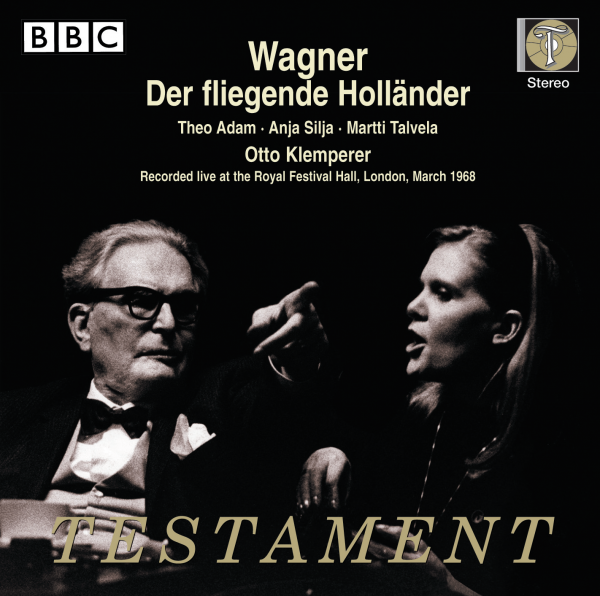Logowanie
Dziś nikt już tak genialnie nie jazzuje!
Bobby Hutcherson, Joe Sample
San Francisco
SHM-CD/SACD - NOWY FORMAT - DŻWIĘK TAK CZYSTY, JAK Z CZASU WIELKIEGO WYBUCHU!
Wayne Shorter, Freddie Hubbard, Herbie Hancock, Ron Carter, Elvin Jones
Speak no evil
UHQCD - dotknij Oryginału - MQA (Master Quality Authenticated)
Chesky! Niezmiennie perfekcyjny
Winylowy niezbędnik
ClearAudio
Double Matrix Professional - Sonic
najbardziej inteligentna i skuteczna pralka do płyt winylowych wszelkiego typu - całkowicie automatyczna
WAGNER, Theo Adam, Silje Nergaard, Otto Klemperer
Der Fliegende Hollander
- CD 1
1. Der fliegende Holländer (The Flying Dutchman), opera, WWV 63: Overture
2. Der fliegende Holländer (The Flying Dutchman), opera, WWV 63: Act 1. Scene 1. Hojohe! Hallojo! Ho! Hallohe!
3. Der fliegende Holländer (The Flying Dutchman), opera, WWV 63: Act 1. Scene 1. Mit Gewitter und Sturm
4. Der fliegende Holländer (The Flying Dutchman), opera, WWV 63: Act 1. Scene 2. Die Frist ist um
5. Der fliegende Holländer (The Flying Dutchman), opera, WWV 63: Act 1. Scene 3. He! Holla! Steuermann!
6. Der fliegende Holländer (The Flying Dutchman), opera, WWV 63: Act 1. Scene 3. Durch Sturm und bösen Wind
7. Der fliegende Holländer (The Flying Dutchman), opera, WWV 63: Act 1. Scene 3. Wenn aus der Qualen Schreckgewalten
8. Der fliegende Holländer (The Flying Dutchman), opera, WWV 63: Act 1. Scene 3. Südwind! Südwind!
9. Der fliegende Holländer (The Flying Dutchman), opera, WWV 63: Act 2. Scene 1. Introduction
10. Der fliegende Holländer (The Flying Dutchman), opera, WWV 63: Act 2. Scene 1. Spinning Chorus. Summ' und brumm'
11. Der fliegende Holländer (The Flying Dutchman), opera, WWV 63: Act 2. Scene 1. Johohoe! Johohohoe! Johohoe! Johoe
CD 2
1. Der fliegende Holländer (The Flying Dutchman), opera, WWV 63: Act 2. Scene 1. Johohoe! Johohohoe! Johohoe! Johoe [Continuation]
2. Der fliegende Holländer (The Flying Dutchman), opera, WWV 63: Act 2. Scene 1. Senta! Willst du mich verderben? / Scene 2. Bleib, Sent
3. Der fliegende Holländer (The Flying Dutchman), opera, WWV 63: Act 2. Scene 3. Mein Kind, du siehst mich
4. Der fliegende Holländer (The Flying Dutchman), opera, WWV 63: Act 2. Scene 3. Mögst du, mein Kind
5. Der fliegende Holländer (The Flying Dutchman), opera, WWV 63: Act 2. Scene 3. Wie aus der Ferne
6. Der fliegende Holländer (The Flying Dutchman), opera, WWV 63: Act 2. Scene 3. Wirst du des Vaters Wahl
7. Der fliegende Holländer (The Flying Dutchman), opera, WWV 63: Act 2. Scene 3. Verzeiht!
8. Der fliegende Holländer (The Flying Dutchman), opera, WWV 63: Act 3. Scene 1. Orchestral interlude / Sailors' Chorus. Steuermann, la
9. Der fliegende Holländer (The Flying Dutchman), opera, WWV 63: Act 3. Scene 1. Johohoe! Johohoe! Hoe! Hoe! Hoe!
10. Der fliegende Holländer (The Flying Dutchman), opera, WWV 63: Act 3. Scene 2. Was muß ich hören!
11. Der fliegende Holländer (The Flying Dutchman), opera, WWV 63: Act 3. Scene 2. Willst jenes Tags
12. Der fliegende Holländer (The Flying Dutchman), opera, WWV 63: Act 3. Scene 2. Verloren! Ach, verloren!
- Theo Adam - bass
- Silje Nergaard - vocal
- Otto Klemperer - conductor
- WAGNER
Theo Adam, Anja Silja, Martti Talvela, James King,
Kenneth MacDonald, Annelies Bermeister
BBC Chorus
New Philharmonia Orchestra
Otto Klemperer
The most remarkable aspect of the performance
remains the empathy between Klemperer, Silja and Adam. Adam's Act 1 monologue seizes the dramatic high ground, but Silja raises the stakes still further with an electrifying account of Senta's Ballad, ad the long duet which ends Act 2 has rarely been as intense and eloquent as it is here. Gramophone, October 2008
Thanks to Testament, we now have the Royal Festival Hall performance, as broadcast by the BBC, to put alongside the Abbey Road recording (above made by EMI at the same period) which might be justifiably deemed one of two or three great readings of the score on CD.
The two main characters are taken by the same singers, Theo Adam and Anja Silja. Martti Talvela and Annelies Burmeister can also be heard on both sets. The main difference is in the tenor department. James King, rather than Ernst Kozub, would probably have sung Erik in the studio if Decca had been willing to release him, and although this is a notoriously unrewarding part especially when it has to be acted as well as sung King's distinctive tonal combination of purity and weight was certainly a bonus in the Festival Hall, just as Kenneth Macdonald makes a fine Steersman. The most remarkable aspect of the performance nevertheless remains the empathy between Klemperer, Silja and Adam. Adam's Act 1 monologue seizes the dramatic high ground, but Silja raises the stakes still further with an electrifying account of Senta's Ballad, and the long duet which ends Act 2 has rarely been as intense and eloquent as it is here.
Live performance always brings risks: there is a split brass note early in Act 1, and Talvela loses his way briefly a little later on. But Klemperer's love of the music's raw edges and robust rhythms is evident throughout. Even at the stately tempo he adopts the Act 3 sailor's dance is so strongly projected that the tension never sags for a moment, and Klemperer's eccentric devotion to the threeact version of the score is far less damaging than it would be in a performance of lower voltage.
The recorded sound also comes up pretty well in this remastering. This extraordinarily 'live' reading of Wagner's windswept score now has the edge, even over the admirable studio alternative.
The Gramophone Classical Music Guide


































